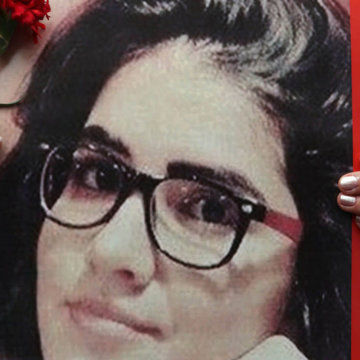- About
- Topics
- Picks
- Audio
- Story
- In-Depth
- Opinion
- News
- Donate
- Signup for our newsletterOur Editors' Best Picks.Send
Read, Debate: Engage.
Özgecan Aslan, a 20 year old psychology Turkish student from Mersin was kidnapped on Wednesday on her way home. The driver of the minibus allegedly tried to rape her while she reportedly fought him off with pepper spray, but was then stabbed to death and hit on the head with an iron pipe. Her burnt body was then found in a riverbed in the city of Mersin, on Friday.
Her killing has also become a political issue, since violence against women has significantly increased during the rule of the AKP. “This murder is not an isolated incident. […] Five women are killed daily in Turkey,” said Yasemin Yücel, the deputy chairwoman of the Tarsus branch of the Education Personnel Union (Eğitim-Sen), said during a protest in Tarsus.
The climate in Turkey is increasingly dominated by ethical religious values, which see women who dress and act according to contemporary modes of living as open targets, too. It is not surprising, therefore, to see people in the Islamist camp suggesting that Özgecan Aslan was murdered because of the way modern secular women dress and behave. Some supporters of Erdoğan's ruling AK Party, however, have suggested that the attack on Aslan was not unusual or that women were to blame for seeking "sexual freedom" or "wearing miniskirts."
In other words: Does the length of women's skirts decide over their well-being in Turkey?
Turkey's president is trying to roll back women’s rights by claiming that it is unnatural to consider men and women as equals, and who is exhorting women to have at least three children and stay home and look after them.
The death of the young woman, Özgecan Aslan, has created an outcry among women in Turkey — and some men — over violence against women. Dozens of rallies were held across Turkey over the weekend to protest the murder of Aslan and to call attention to the increasing violence against women in Turkey.
Women have begun a social media campaign to share their accounts of sexual harassment and violence in the wake of the brutal murder by using the hashtag #sendeanlat (tell your story) to describe experiences of sexual harassment or #Özgecaniçinsiyahgiy (Wear Black For Özgecan).
